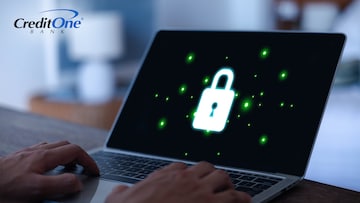
What Is Identity Theft Protection and Is It Worth It?
November 10, 2025
Dealing with the aftermath of identity theft can take a toll on its victims. But what is identity theft protection and how can it help?

Introduction
Millions of Americans are impacted by identity theft each year. In 2023, the Bureau of Justice Statistics reported that almost 24 million people had experienced some form of identity theft just two years prior. And depending on the type of theft, victims may need to do a staggering amount of work to bounce back.
With this in mind — plus phishing scams and data breaches in the news — it’s no wonder that identity theft protection is a growing industry.
But what is identity theft protection, anyway? And how can it help you? Let’s take a closer look at how these services work and how you can protect your personal information.
How Do Identity Theft Protection Services Work?
Identity theft protection services offer a wide range of services designed to alert you to potential fraudulent use of your personal information and suspicious activity on your existing accounts.
They may monitor credit reports, bank accounts, investment accounts, credit card transactions, and even the dark web for signs of your information being misused.
They might also tap into databases that show crimes committed in your name, court records in your name, and more — again, depending on the service.
The types of accounts and databases monitored vary by company and depend on the plan you enroll in. Identity theft protection companies typically offer more than one plan, so be sure to understand the details of all their plans, including what they monitor and how often they look at the things and places they say they’re going to watch.
Keep in mind that identity protection services do not prevent the initial fraudulent activity from occurring, so it helps to think of these services in terms of monitoring and mitigation.
They notify you if suspicious activity is detected, so you can take preventive measures if it’s early enough. Or, if fraud has already occurred, you can quickly minimize the damage.
How Can Identity Theft Protection Services Help If Your Identity Is Stolen?
If your identity is stolen, an identity theft protection service may be able to help you sort things out. Depending on your plan, they might simply advise you on the steps they believe you should take to recover your identity. Or they could take a more active role, doing things like writing letters for you or even freezing your credit, which helps prevent identity thieves from opening new accounts in your name.
They may even work on your behalf to help recover your identity and minimize any collateral damage from identity theft.
Some services and plans may even reimburse certain losses and costs. This can include any stolen funds (up to the plan’s limit), expenses incurred during the recovery process, or even legal fees while you’re attempting to recover your identity.
Compare this with dedicated identity theft insurance, which reimburses your costs from the recovery process, but not losses from the theft itself.
Are Identity Protection Services Worth It?
The truth is that many of the monitoring and recovery services offered by identity protection companies are things you can do yourself for free.
But while doing it yourself is great for something like a home project where you can go at your own pace, time is of the essence when it comes to identity theft.
Typically, the sooner you realize someone is using or attempting to use your information without your permission, the easier it is to help minimize the damage.
One of the benefits of working with an identity protection service is how often they monitor your accounts and check databases. So, unless you’re checking your accounts regularly, an identity protection company may notice something out of the ordinary long before you do.
If you are considering the DIY route, most credit cards offer varying degrees of fraud protection as a cardmember benefit and, depending on the card, may alert you to any out-of-the-ordinary or suspicious card activity.
Some even offer alerts that extend beyond just your account, providing Social Security number alerts or alerts of inquiries made to your credit report(s) that could indicate someone is trying to open a new account in your name.
If someone does steal your identity, the Federal Trade Commission offers valuable resources at IdentityTheft.gov, including a free personal recovery plan. They’ll even pre-fill forms and letters and update your plan as you make progress.
Ultimately, it’s up to you to look at everything an identity theft protection plan offers and weigh the cost against the time, effort, and scope of doing it yourself.
Ways To Help Protect Your Identity From Being Stolen
Whether you decide to use an identity theft protection service or not, you can take a few actions to help prevent your personal information from being compromised.
Monitor your accounts
Regularly checking your credit, bank, and investment accounts is one of the best ways to know whether someone has accessed them without your permission. So, pay attention to your statements and keep an eye out for any suspicious activity.
Set up account alerts
Many financial institutions give customers the option to receive automated financial notifications when suspicious activity is detected. They’re typically customizable, and you can usually opt to receive them by email or text message. If you have your financial institution’s mobile app installed on your smartphone, there may be additional notification options too.
Review your credit reports
The Fair Credit Reporting Act entitles all Americans to receive a free copy of their credit report from each of the three major credit reporting agencies every year, but they’re now available every week at AnnualCreditReport.com. It’s a good idea to regularly check your reports for errors and unknown accounts opened in your name.
Secure your devices and accounts
Make sure you’re choosing unique, complex passwords that are difficult to guess for every online account you have. Use password managers to avoid having the same password for multiple accounts. And embrace digital security practices like regularly updating your devices and taking care when using public Wi-Fi, to help protect your accounts from hackers.
Freeze your credit
Consider freezing your credit to help prevent fraudsters from opening new accounts in your name. It’s free.
Bottom Line
Identity theft can have long-lasting financial and legal consequences, not to mention the emotional toll it can take on victims. Whether you enroll in a protection service or prefer a DIY approach, it’s important to take the appropriate steps to minimize your risk of identity theft.



